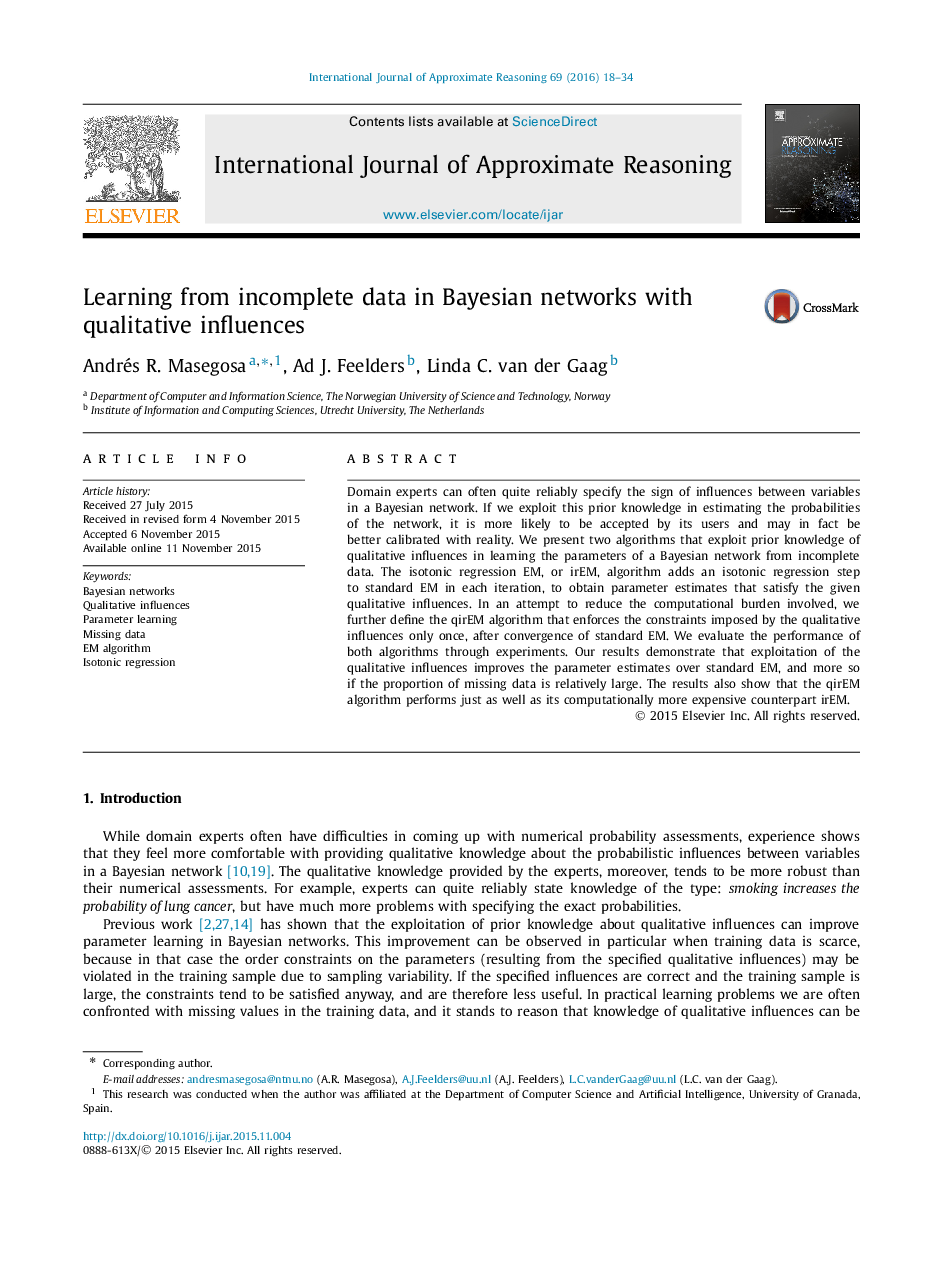| Article ID | Journal | Published Year | Pages | File Type |
|---|---|---|---|---|
| 6858937 | International Journal of Approximate Reasoning | 2016 | 17 Pages |
Abstract
Domain experts can often quite reliably specify the sign of influences between variables in a Bayesian network. If we exploit this prior knowledge in estimating the probabilities of the network, it is more likely to be accepted by its users and may in fact be better calibrated with reality. We present two algorithms that exploit prior knowledge of qualitative influences in learning the parameters of a Bayesian network from incomplete data. The isotonic regression EM, or irEM, algorithm adds an isotonic regression step to standard EM in each iteration, to obtain parameter estimates that satisfy the given qualitative influences. In an attempt to reduce the computational burden involved, we further define the qirEM algorithm that enforces the constraints imposed by the qualitative influences only once, after convergence of standard EM. We evaluate the performance of both algorithms through experiments. Our results demonstrate that exploitation of the qualitative influences improves the parameter estimates over standard EM, and more so if the proportion of missing data is relatively large. The results also show that the qirEM algorithm performs just as well as its computationally more expensive counterpart irEM.
Related Topics
Physical Sciences and Engineering
Computer Science
Artificial Intelligence
Authors
Andrés R. Masegosa, Ad J. Feelders, Linda C. van der Gaag,
